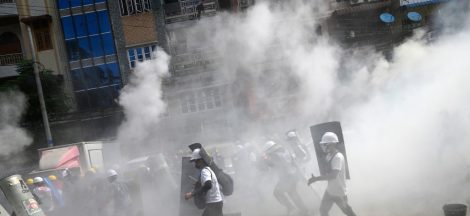OPEC+ to boost oil output after Saudis secure deal with Iran OPEC and allies including Russia will boost oil production starting next month, offering relief to consumers after Saudi Arabia secured a last-minute deal to overcome Iran’s opposition.

While it fudged some differences between members, the agreement is a victory for Riyadh and Moscow, which for a month have advocated for a production increase to alleviate high prices. It’s also a success for US President Donald Trump, who has criticized the Organization of Petroleum Exporting Countries for inflating the cost of fuel.
“Hope OPEC will increase output substantially,” Trump said on Twitter after the meeting ended. “Need to keep prices down!”
OPEC agreed on a “nominal” production increase of 1 million barrels a day, Saudi Energy Minister Khalid Al-Falih told reporters in Vienna. In reality, the accord will add about 700,000 barrels a day of oil to the market in the second half of the year because several members are unable to increase their output, said Nigeria’s Oil Minister Emmanuel Ibe Kachikwu.
“OPEC got the message,” said Abhishek Deshpande, an executive direction at JPMorgan. “The Goldilocks oil price target is just shy of US$70 a barrel, that should quiet the complaints from the consumers.”
The final communique from the group’s meeting in Vienna left some unanswered questions about how the oil will flow to consumers. The document didn’t mention the specific production hike cited by Al-Falih, instead pledging that the group would focus on restoring its output cuts to the level originally agreed in 2016.
OPEC and its allies exceeded their pledged 1.8 million barrel-a-day production cut by 47 percent last month, according to Russian Energy Minister Alexander Novak. That’s about 850,000 barrels a day of additional supply losses that have been largely unintentional, reflecting the collapse in Venezuela’s oil industry and long-term declines in Mexican output.
Saudi Arabia has enough spare capacity to offset those losses and keep a lid on prices, but Al-Falih has acknowledged that such a move isn’t politically palatable for his fellow OPEC members.
The final communique made no mention of whether the kingdom, or any other member, could compensate for losses elsewhere. Yet it said the group as a whole should strive for “overall conformity” of 100 percent, which in practice will only be achievable if those nations with spare production capacity step in to fill the gap left by others.
“The lack of specificity is bullish for prices,” said Joe McMonigle, senior energy analyst at Hedgeye Risk Management LLC. “It’s a mystery oil production increase because we don’t really know the final numbers.”
Crude actually rallied following the OPEC deal, with US benchmark West Texas Intermediate jumping as much as 3.7 percent to $67.93 a barrel.
The vague language may help to preserve the hard-won unity of the group of 24 oil producers, whose cooperation ended a three-year price slump. It salvages an agreement that was very much in doubt on Thursday evening after Iranian Oil Minister Bijan Namdar Zanganeh walked out of a meeting with fellow ministers, predicting nobody could persuade him to back an increase.
Iran has bridled at Trump’s interventions. Zanganeh has said the US president is to blame for high prices because of his unilateral withdrawal from the international nuclear agreement and the imposition of fresh sanctions that could significantly curb Iran’s crude exports.
After all the internal OPEC wrangling, which for weeks has whipsawed oil markets, the group’s president said Friday’s deal was all about the needs of oil users.
“This agreement that we reached is a testimony that we care about the consuming countries,” United Arab Emirates Energy Minister Suhail Al Mazrouei, who is also OPEC president, told reporters. “We listen when they say that they have a concern.”
OPEC will meet again on Saturday with non-members, including Russia, to ratify Friday’s agreement. OPEC+ to boost oil output after Saudis secure deal with Iran (Javier Blas, Julian Lee and Salma El Wardany, Bloomberg, The Jakarta Post)





 Memadukan Teknologi Adaptasi terhadap Pemanasan Global
Memadukan Teknologi Adaptasi terhadap Pemanasan Global 